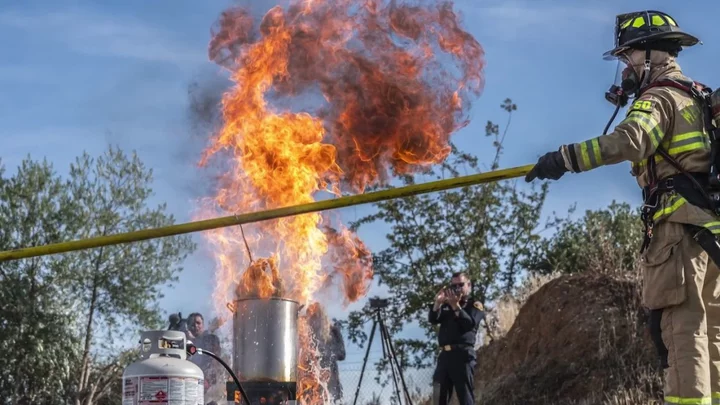Fire might seem like one of the most elemental things in the natural world, but it’s never been found anywhere other than Earth.
It’s because the creation of fire relies on very specific circumstances. In fact, if fire was ever found on another planet, it would be a good indicator of the possible existence of life.
Oxygen is key to fire, and while it’s particularly prevalent in the universe, Earth’s atmosphere features an abundance of the element in the right molecular form for it to form.
Even then, the way the Earth’s atmosphere has changed over its lifespan is also crucial to conditions being fostered where fire can form [via IFLScience].
For millions of years, in fact, there wasn’t enough oxygen in the atmosphere to create fire. Before the Middle Ordovician period, when there was far less oxygen, there’s no evidence of fire whatsoever.
Most of the fuel that fire needs is also directly related to life existing on the planet – think wood, oil and coal. Without life, there isn’t an awful lot of fuel going around, which just shows why the existence of fire on another planet would be a very promising sign when it comes to exploring the universe for life.
Despite fire being much rarer in the universe than most might think, it was previously confirmed that humans in Europe may have mastered fire long before we previously thought.
According to a study published in Scientific Reports, humans made the discovery around 245,000 years ago, up to 50,000 years earlier than scientists believed,
Researchers studied samples from the Valdocarros II, a huge archaeological site found east of Madrid, Spain. Using chemical analysis, they found certain compounds that show things were burnt by fire in "organised" social events, rather than through accidents or wildfires.
Sign up for our free Indy100 weekly newsletter
How to join the indy100's free WhatsApp channel
Have your say in our news democracy. Click the upvote icon at the top of the page to help raise this article through the indy100 rankings

